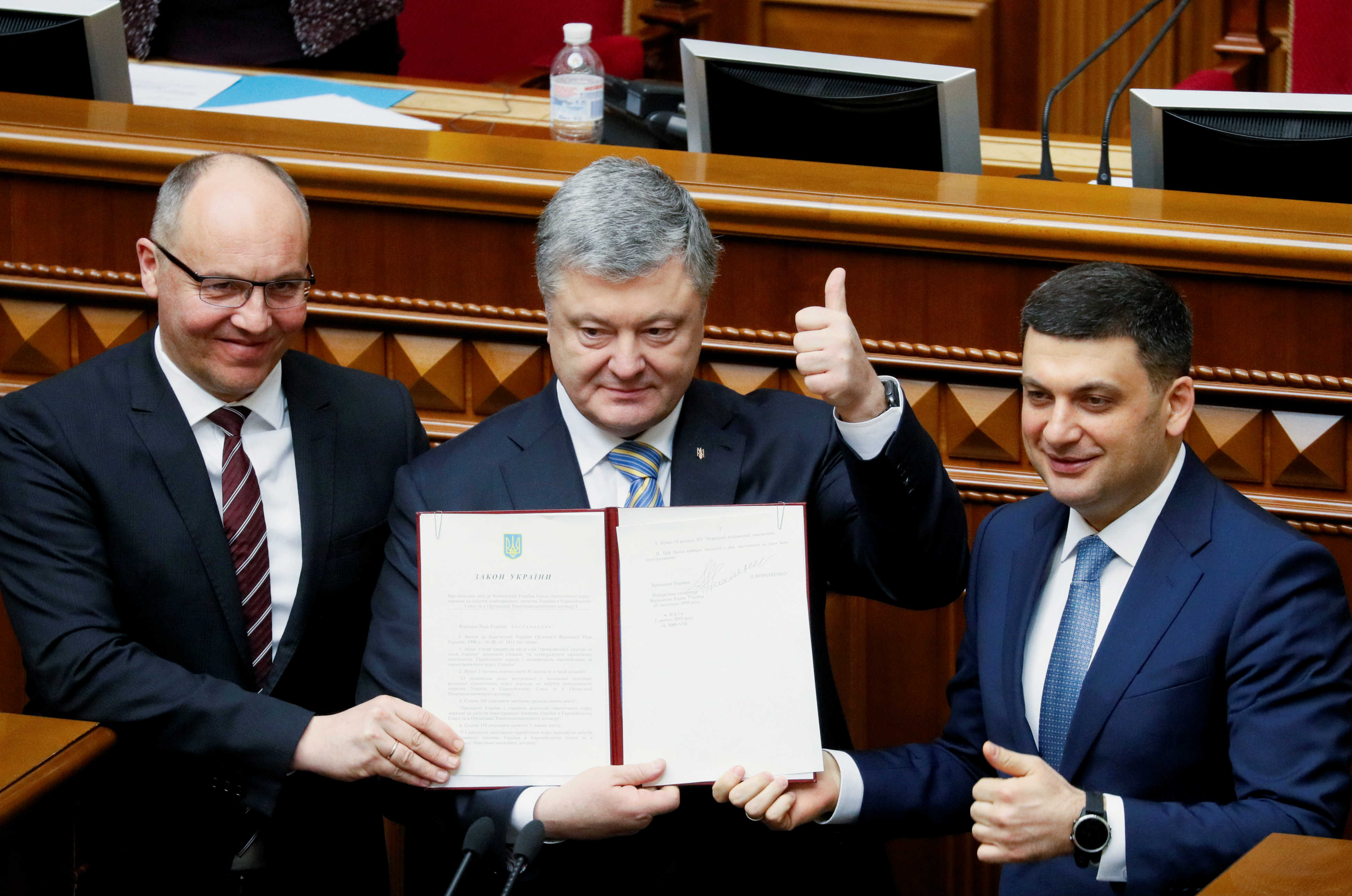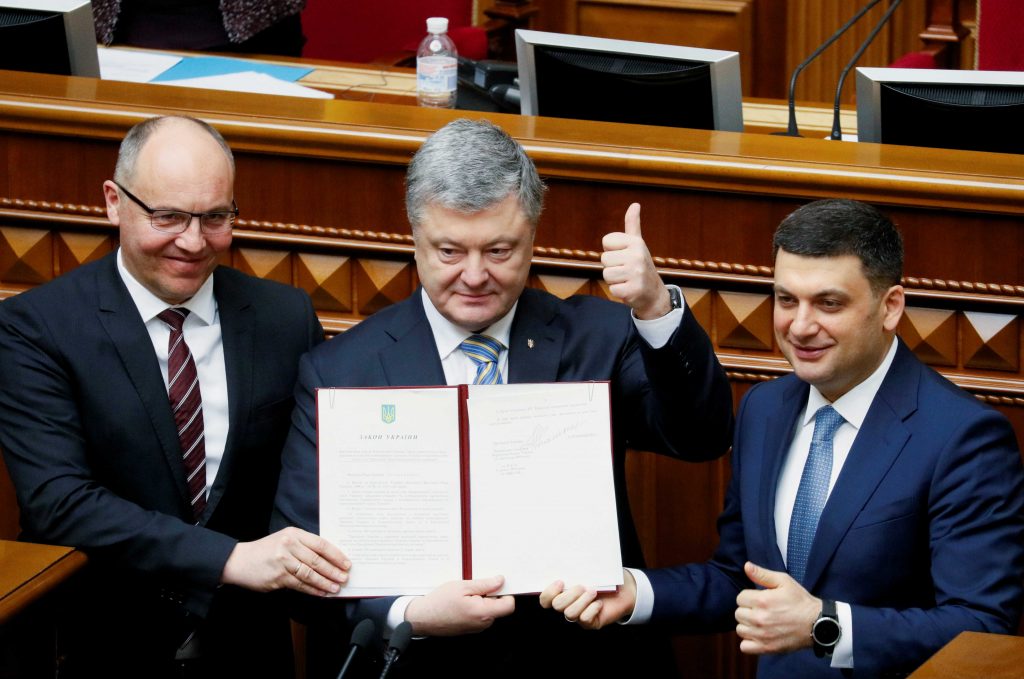
Elections may be on the horizon, but I firmly believe that reforms will continue through 2020 and beyond. Now that Ukraine has enshrined EU and NATO accession as the fundamental direction of the country, whoever comes to power, Ukraine’s pro-western economic development and orientation cannot be reversed.
And yet this path was far from certain. It’s easy to forget that Ukraine has undergone an incredible transformation in only five years. Following the near economic collapse after Russia annexed Crimea and occupied parts of eastern Ukraine in 2014, we have achieved macroeconomic stabilization. We have maintained a stable GDP growth rate of around 3-4 percent while keeping tight control of monetary policy, a strengthening currency, and declining inflation. The financial sector is capitalized, and transparent, but also profitable—for the first time in five years.
Even if it’s not fashionable any more, we do believe in free trade and gain a lot from it. For example, Ukraine’s recent alliance with the EU has generated significant export growth, and we have also signed landmark bilateral free trade agreements with Canada and Israel. This approach is working. In Davos on Invest Day at Ukraine House Davos last month, President Petro Poroshenko witnessed the signing of two deals worth an initial $370 million, including $170 million for the first phase of a windfarm that will one day represent a $1 billion investment.
The international investment community’s appetite is growing for Ukraine. Horizon Capital recently announced a new $200 million private equity fund to take advantage of attractively priced undervalued assets in Ukraine. Horizon Capital already has $850 million invested in three funds, from more than forty US and European institutional investors. This has translated into investments in 140 companies that employ more than 46,000 people in Ukraine.
In a volatile international marketplace where investors are searching for returns, Ukraine continues to pursue macroeconomic stability and fiscal discipline, including recently moving to a three-year budgeting cycle which enables longer term planning. In terms of fiscal rigor, we have just enacted a law that prohibits state and state-guaranteed debt exceeding 60 percent of GDP, and stipulates that the state budget deficit must remain below 3 percent of GDP and that government financial guarantees shall be limited to 3 percent, all of which makes the country compliant with fiscal constraints required from EU countries.
Ukraine’s economic reforms have delivered security and predictability for investors at a time when asset prices are still low and our highly educated and talented labor force is extremely competitive. Further, exports from the former Soviet states to Europe and North America continue to gather speed. This transformation means that Ukraine is now seen as an integral part of the Central and Eastern marketplace for goods, labor, and investment by ratings agencies, bankers, and analysts.
Many investors might be surprised to know that some of the fastest-growing sectors include renewable energy, information technology, automotive technology, and high-end agrifood manufacturing.
There is also progress in the banking sector. The International Finance Corporation (IFC) has confirmed its readiness to consider investment in the capital of state-owned Ukrgasbank, a powerful signal for investors. Across the board, the Finance Ministry, with the IFC’s support, has worked to strengthen corporate governance, ensure the banking sector’s independence, and to further cement a stable banking model for the country based on commercial viability.
We have also been reforming the actual government in noteworthy ways. Gender parity is fundamental to how economies and societies thrive. Ukraine’s Ministry of Finance has made gender-responsive budgeting a legal requirement. Starting this year, national and regional agencies will have to analyze their funding allocations from a gender perspective.
Meanwhile, Ukraine’s strong civil society contributes to our harmonious development. As Ukraine continues to integrate into the Euro-Atlantic security and economic architecture, it is definitely open for business—now and in the future.
Oksana Markarova is finance minister of Ukraine.
Image: Ukrainian President Petro Poroshenko, Parliamentary Speaker Andriy Parubiy and Prime Minister Volodymyr Groysman show signed amendments to the constitution regarding the country's intentions to join the European Union and NATO, during a session in Kyiv, Ukraine February 19, 2019. REUTERS/Valentyn Ogirenko
